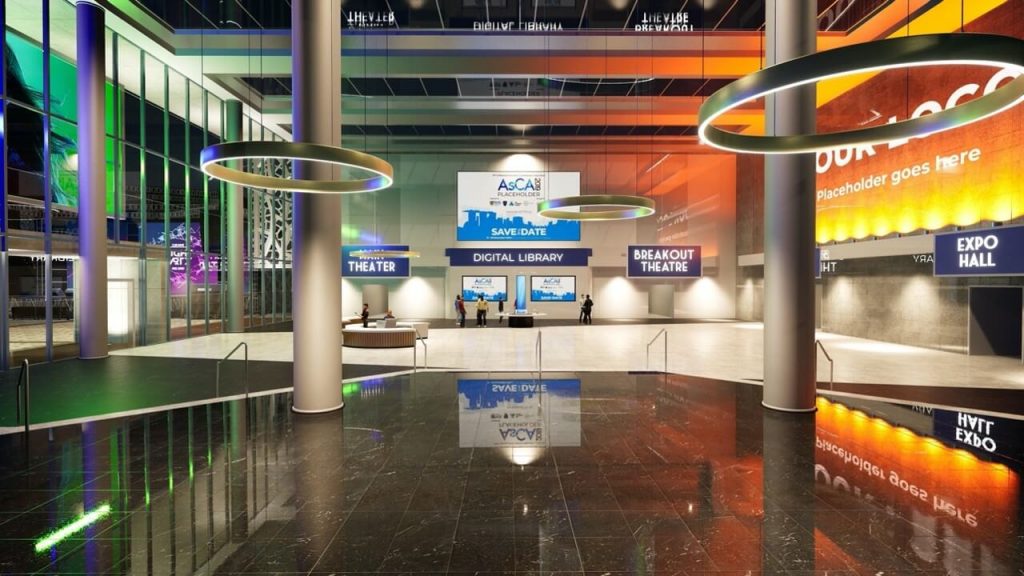Virtual events have been around for a long time, and a simple webinar or livestream poses few problems these days. But as your online event grows larger in scale, the more likely you might be worried about technical issues. If you have a good tech team standing by, you’ll be able to solve problems as they arise or even prevent them from happening at all. But it helps to be prepared in other ways too. Here are tips for nipping tech troubles in the bud.
1. Use the Right Platform
There are dozens of options for holding an online event, from free bare-bones to high-tech full-service platforms. It can be difficult to sift through all your options, especially as a first-timer. The simplest way to start is just by listing your event requirements. Then you can eliminate any options that don’t have what you need.
For the most seamless and user-friendly attendee experience, an all-in-one platform is best. These integrate everything you need, including livestreaming, engagement tools, networking options, and more.
Using an all-in-one platform has several benefits:
- They’re typically professionally designed and have undergone rigorous testing to eliminate software bugs that might cause problems during the event.
- They usually have built-in tech support, so your attendees can get help if they have any issues with the platform.
- Most will let you hold a trial run ahead of the event, so you get experience with how the platform works when you go live.
All of these benefits help prevent technological issues during the event. And thanks to the platform’s tech support, it’s easier to resolve any problems if they do arise.
Most all-in-one platforms also let you stream multiple sessions at once. If you’re hosting a large event, this helps you pack more content into your schedule, and provide more options for attendees.
Then there are optional extras that go beyond the essentials to improve the user experience and thus contribute to the success of the event. It’s been noted by some presenters that it’s hard to get the same level of engagement and interaction that they enjoy at live events. As a result, gamification and other forms of engagement are quickly becoming of interest to online event organizers. These kinds of extras may be the difference between a good event and a great one.
2. Hire Great Technical Support
How will you manage attendee and exhibitor tech support issues? Depending on the virtual event platform you choose, tech support may already be built in. If so, you’ve got one less thing to worry about. If it’s not, consider putting together a team specifically to provide tech support, especially for a large event Having one or more people on hand to help attendees or exhibitors who are having technical problems will improve the overall user experience, and ensure that you’re not losing viewers due to those problems.
Whichever option you end up with, make sure attendees know where to find help if they need it, whether that’s the event platform’s troubleshooting guides or your own tech support team.

3. Provide Clear Instructions for Use
Large-scale virtual events are relatively new. It’s likely that a significant percentage of people won’t have attended such an event before, or won’t have used your platform before. To make sure every attendee has the best experience possible, it’s important to provide clear, easy-to-follow instructions on how to use each feature. Do the same for your event exhibitors, where applicable. If everyone knows what they’re doing, it will minimize the potential for online event technical problems that might negatively affect the user experience.
Here are a couple ideas for communicating clearly:
- Make a visual guide available on the event website, with screenshots that show attendees what to do.
- Create a video guide where you explain each step as you do it – Provide these instructions ahead of time, by including a link in your pre-event email blasts.
As well as providing user instructions, it’s important to make sure attendees and exhibitors know where to find help if they need it. Make it easy for people to find that help, so they don’t have to spend a chunk of event time hunting for a solution. Some options include:
- Putting help and troubleshooting guides on the event platform – Or, if you’re using an all-in-one platform, send out an email blast with links to the platform’s help section and tech support.
- Making sure every page on your event website prominently displays a link to the help section
- Sending out by email links to the website help section, your tech support team, and any troubleshooting guides or FAQs that are applicable – Send these as a separate email from any other event announcements—with a succinct and relevant subject line—so it’s easy for attendees to locate in their inboxes if they need it.
- Include a help section with access to the tech support team in your event app, if you have one
4. Don’t Underestimate Your Bandwidth Needs
What’s the worst thing you can imagine happening at your virtual event? What if your site overloads and crashes right before the keynote speech, leaving thousands of attendees with blank screens? That’s what happened at the Sapphire Now Reimagined Conference in June, as a result of heavy attendee traffic that overloaded the website.
It’s may be difficult to accurately estimate your bandwidth needs, especially if it’s your first virtual event. So err on the side of caution, and arrange for more than you think you’ll need. And make sure you choose an event platform that can provide quick solutions if bandwidth does become an issue.
5. Run a Rehearsal
If you want to be good at something, practicing is always the way to go! Virtual events are no different. You probably won’t want to run a full-length rehearsal if you have a big content schedule, but your presenters and speakers will likely be glad to have the chance to test out the platform a few days before they go live. You may even have people who are presenting from their own homes. They’ll be able to make sure their own equipment works, that their slideshows present properly, and that they can utilize any communication and engagement tools on the platform.
Some other points to think about include:
- How will you coordinate your scheduled lineup? You’ll be working with a variety of presenters to make sure they all start and finish on time—and if you’re running parallel sessions, scheduling can get complicated.
- How will you deal with timing issues? For instance, what will you do if one speaker runs over their allotted timeslot? Building in content breaks can help deal with this.
- What happens if one of your speakers has technical issues? Viewers will be stuck watching a black screen while you’re dealing with the problem, and you risk losing them. Consider having some recorded content available in case a speaker is delayed or you have problems with your livestream. Or, if you’re running a hybrid event, be prepared to switch to a floor reporter or similar live option.
Holding a rehearsal is the best way to figure out exactly how it’s all going to work and minimize the risk of technical problems at your online event. It’s also a good opportunity to find out what might go wrong, as your rehearsal is likely to help you identify potential problem areas.

Be Well Prepared for the Best Results
If you’ve hosted live events before, you already know just how vital good preparation is. The same is true of virtual events. When you’re entirely online, technical problems are possible. If you’re well-prepared to handle any issues that do arise, you’ll be able to ensure they don’t derail your event.









